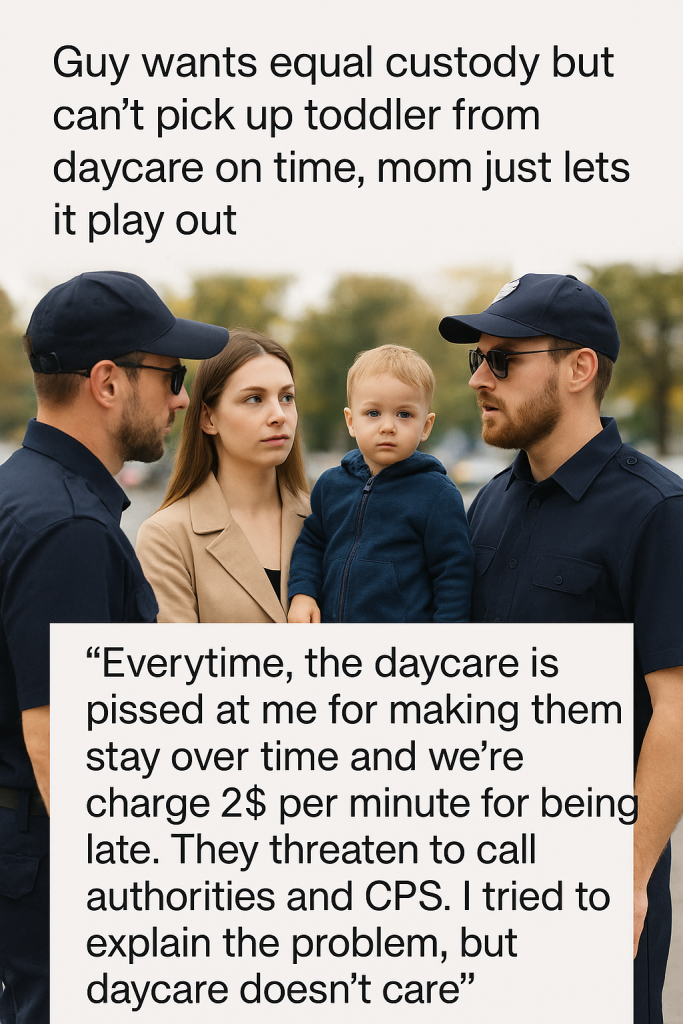A father’s quest for equal custody of his toddler is revealing new challenges in co-parenting as repeated delays in daycare pickups create tension between parents and caregivers alike. The situation highlights the complex realities many parents face when negotiating custody arrangements alongside demanding daily logistics.
The father, actively pursuing joint custody rights, has found himself unable to consistently collect his child from daycare within the required timeframe. According to what has emerged from recent social media discussions and parental forums, these repeated late pickups have led to mounting frustration among daycare staff. The mother, currently the primary caregiver during these drop-off and pick-up hours, reportedly chooses to allow the situation to unfold rather than intervene directly.
This dynamic is causing a strain on both family relations and childcare providers. Daycare centers typically operate with strict schedules to ensure smooth functioning and child safety, making late arrivals a significant disruption. For this toddler and his parents, what started as a custody negotiation has now become a reminder of the practical hurdles involved in shared parenting.
Experts in family law and child psychology note that custody discussions often focus on legal rights but must equally consider logistical feasibility. Effective communication and mutual cooperation between parents are essential, especially when young children’s routines and well-being are at stake.
“Joint custody is ideal in many cases, but it requires both parents to coordinate closely on daily responsibilities,” explains a family law consultant familiar with similar custody disputes. “When one parent struggles with consistent pickup times, it can impact the child’s stability, the daycare’s operations, and the other parent’s trust.”
Social media posts framing the father’s tardiness have sparked broader conversations about parenting expectations in today’s society. Some voices sympathize with the dad’s efforts to be more involved despite logistical challenges, while others emphasize the mother’s patience yet tacit acceptance of the ongoing issue. The toddler, caught in the crossfire, remains the central concern for all parties.
The daycare itself has not publicly commented on the specific family but is known to adhere to clear policies regarding pickup times to ensure child security and avoid penalties. Repeat late pickups often prompt conversations with parents to address the underlying causes and mold a workable plan for the child’s care.
In this case, the unresolved tension has led to critics urging more proactive solutions: Could flexible daycare hours, alternate pickup arrangements, or mediation sessions between parents ease the friction? Custody experts recommend mediation as a practical step to reconcile scheduling conflicts before they escalate into legal battles that can overwhelm families emotionally and financially.
As shared custody becomes more common, this story underscores how equal parental rights must be matched with equal responsibility and logistical capability. The safety and routine of children, especially toddlers, depend greatly on dependable caregiving — something that ultimately requires both parents to work in concert beyond just legal agreements.
While this family’s situation remains ongoing, their story serves as a compelling reminder: Negotiating custody is about more than just time-sharing — it’s about creating a cooperative environment that supports the child’s best interests in practical, day-to-day ways.



